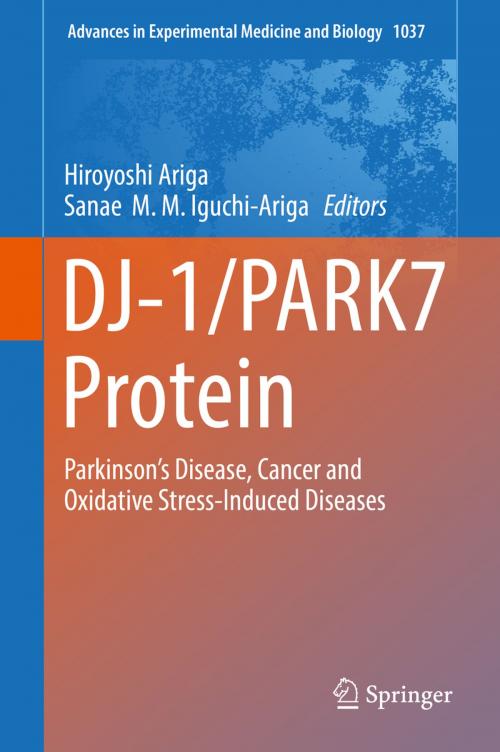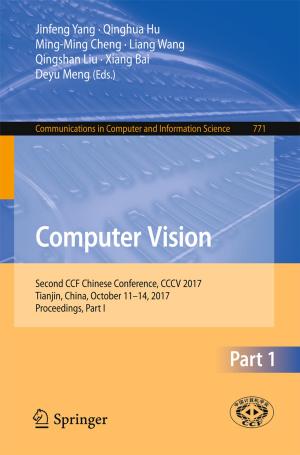DJ-1/PARK7 Protein
Parkinson’s Disease, Cancer and Oxidative Stress-Induced Diseases
Nonfiction, Science & Nature, Science, Biological Sciences, Biochemistry, Health & Well Being, Medical, Specialties, Oncology| Author: | ISBN: | 9789811065835 | |
| Publisher: | Springer Singapore | Publication: | November 16, 2017 |
| Imprint: | Springer | Language: | English |
| Author: | |
| ISBN: | 9789811065835 |
| Publisher: | Springer Singapore |
| Publication: | November 16, 2017 |
| Imprint: | Springer |
| Language: | English |
This book reviews the functions and roles of DJ-1 in various oxidative stress-related diseases and applications of DJ-1 and its binding compounds to the diseases. The *DJ-1 *gene was first found to be a novel oncogene in 1997 and later, in 2003, also found to be a causative gene for a familial form of Parkinson’s disease (PD), park7. The DJ-1 gene is therefore the first gene discovered that is known to cause cancer and neurodenegerative diseases, including PD. The research field has expanded as the research has developed. Thus this volume begins with a general introduction of DJ-1, and explains the history and research development to understand the following chapters. Those chapters present the roles of DJ-1 in various oxidative stress-related diseases such as neurodegenerative diseases, as well as cancer, diabetes, and fertility. Moreover, several chapters present evidence that DJ-1 is useful for therapeutic strategies against these diseases. The reader will discover that DJ-1 is a promising protein both for basic cell biology and for the mechanism and therapy for oxidative stress-related diseases.
This book reviews the functions and roles of DJ-1 in various oxidative stress-related diseases and applications of DJ-1 and its binding compounds to the diseases. The *DJ-1 *gene was first found to be a novel oncogene in 1997 and later, in 2003, also found to be a causative gene for a familial form of Parkinson’s disease (PD), park7. The DJ-1 gene is therefore the first gene discovered that is known to cause cancer and neurodenegerative diseases, including PD. The research field has expanded as the research has developed. Thus this volume begins with a general introduction of DJ-1, and explains the history and research development to understand the following chapters. Those chapters present the roles of DJ-1 in various oxidative stress-related diseases such as neurodegenerative diseases, as well as cancer, diabetes, and fertility. Moreover, several chapters present evidence that DJ-1 is useful for therapeutic strategies against these diseases. The reader will discover that DJ-1 is a promising protein both for basic cell biology and for the mechanism and therapy for oxidative stress-related diseases.















